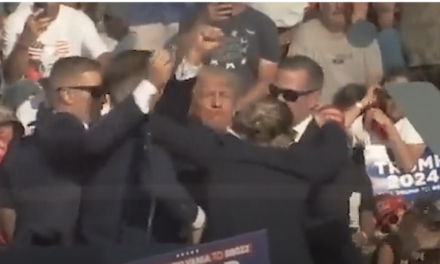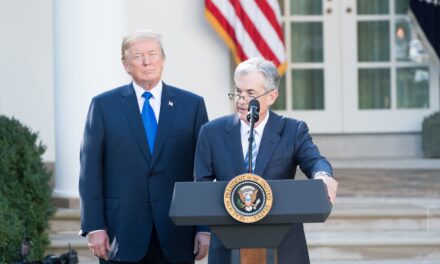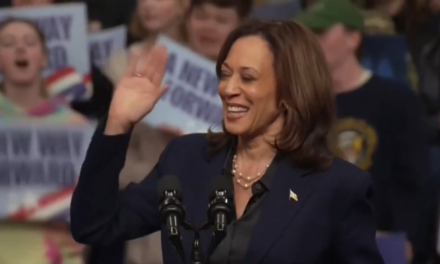We support our Publishers and Content Creators. You can view this story on their website by CLICKING HERE.
During the 2020 election, the swing state of Georgia was part of a larger trend of abnormally high requests for overseas ballots through a system riddled with potential loopholes and lack of safeguards. But this year, the number of overseas ballots requested in the state reflects a nearly 15 percent decline from what Georgia sent to overseas voters in 2020.
Since 1986, U.S. military members, their family members, and overseas citizens have been allowed to vote absentee under the Uniformed and Overseas Citizen Voting Act (UOCAVA).
During the 2020 election in Georgia, 28,454 UOCAVA ballots were transmitted by the state to voters who had requested them, according to a report from the U.S. Elections Assistance Commission (EAC). But that number has declined by nearly 15 percent in 2024, with only 24,172 UOCAVA ballot requests in Georgia during this cycle, according to data from the Secretary of State. For reference, in 2016 only 18,634 UOCAVA ballots were transmitted by the state.
Georgia is one of several states that permits a “U.S. citizen who has never resided in the U.S.” to vote, as long as they have “a parent or legal guardian that was last registered in Georgia,” according to the Federal Voting Assistance Program (FVAP). According to a 2023 fact sheet on UOCAVA voters from the EAC, the address where an overseas voter is registered may be “home to other registered voters,” and “election mail for a UOCAVA voter who no longer lives at that address” may still be sent to “current residents.”
“Election Officials should explain to the current resident that a military or overseas voter is eligible to use their former physical residence for voter registration purposes, even if they typically receive mail overseas,” the fact sheet says.
Further, all states are required to accept the Federal Post Card Application from those who fall under UOCAVA as both a registration form and an official request for an absentee ballot. As Department of Defense spokesman Joshua Wick previously told The Federalist, “FVAP coordinates with states” to ensure the information on the Federal Post Card Application and the Federal Write-In Absentee Ballot — a “backup” ballot for voters under UOCAVA who not receive an absentee ballot “in time” to meet state deadlines — “will be sufficient to process the form and determine if the voter meets the residency requirements for that jurisdiction.”
“This includes the signed voter affirmation stating that all the information provided is true under penalty of perjury,” Wick said. “The state or local election office is the ultimate arbitrator as to a voter meeting the state’s residency requirements.”
Notably, the Federal Post Card Application allows voters to indicate they want to receive “voting materials” via “email or online.” As noted in an FVAP “2020 Overseas Citizen Population Analysis Report,” “email was the most common mode of ballot receipt in 2020” for overseas voters, “unlike in 2018 and 2016.”
But as NPR noted in 2023, “voting online is very risky” even as “hundreds of thousands of people are already doing it.” The piece noted a report from a UC Berkeley working group of security experts who spent more than a year examining internet voting found that “at internet scale, it would be effectively impossible to stop widespread fraud without strong digital credentials.”
[READ NEXT: How Does Nevada Keep Bad Actors From Abusing Its Insecure Online Voting System? Officials Can’t Say]
During the 2020 election, more than 913,700 overseas ballots were counted — a nearly 36 percent jump from 2016 levels. As my colleague Beth Brelje noted, this number of UOCAVA ballots in 2020 was high despite the Department of State arranging to bring home 101,386 Americans from 136 countries due to the pandemic.
And while the number of UOCAVA ballot requests has decreased in Georgia, Democrats previously announced they are pouring hundreds of thousands of dollars into “mobilizing the overseas vote” with Democrats Abroad — “the official Democratic Party arm for the millions of Americans living outside the United States.” As Democratic National Committee Executive Director Roger Lau said in an August statement announcing the investment: “Democrats are leaving nothing to chance” in such a close election.
“With the largest investment in Democrats Abroad this cycle, we’re going to win this election by engaging voters inside and outside the U.S.,” Lau said, “and this investment shows our commitment to leaving no stone left unturned.”
For more election news and updates, visit electionbriefing.com.
Brianna Lyman is an elections correspondent at The Federalist. Brianna graduated from Fordham University with a degree in International Political Economy. Her work has been featured on Newsmax, Fox News, Fox Business and RealClearPolitics. Follow Brianna on X: @briannalyman2

 Conservative
Conservative  Search
Search Trending
Trending Current News
Current News 





